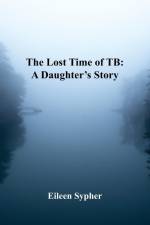av Eileen Sypher
267
This book is a daughter's late-life piecing together of her father's short life. These were years of lost time, time when she knew only the silence surrounding him. He died in 1952 from tuberculosis, leaving behind a wife, a five-year-old daughter and a two-year-old son. Like so many who suffered from tuberculosis in that time1 he left no words about what he went through, his worries, his pain. Her mother and other family,members did not mention TB, perhaps to protect the children, or themselves, perhaps out of the too-common shame that accompanies stigmatized illness. No one wanted to remember him as ill, and yet his disease consumed a third of his life and afflicted all his movements, where he worked, where he lived, whom he could embrace. The book relies on memories, photographs, and the few stories family and genealogy tell. And the account, of necessity, researches TB, his TB, likely derived from the cows he loved and milked in New England. This disease would lead him to lose a job, live in two sanatoria (the quarantine strategy of the first half of the twentieth century), and risk a painful and difficult surgery so he could have a life. Although this story is unique, its outlines are not. TB, although now nearly forgotten in the United States despite continuing cases, was the leading infectious disease in the world before Covid. It has not yet been conquered. This story is both an old one and one likely to be repeated in places and times to come.


